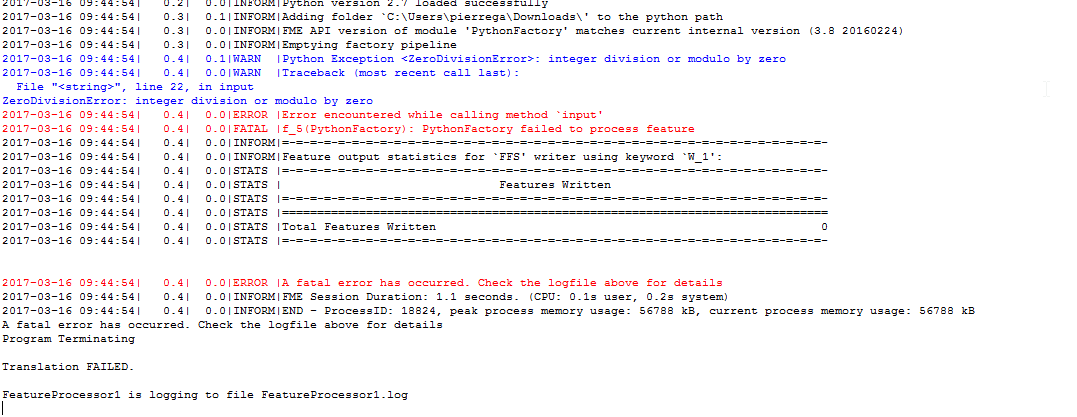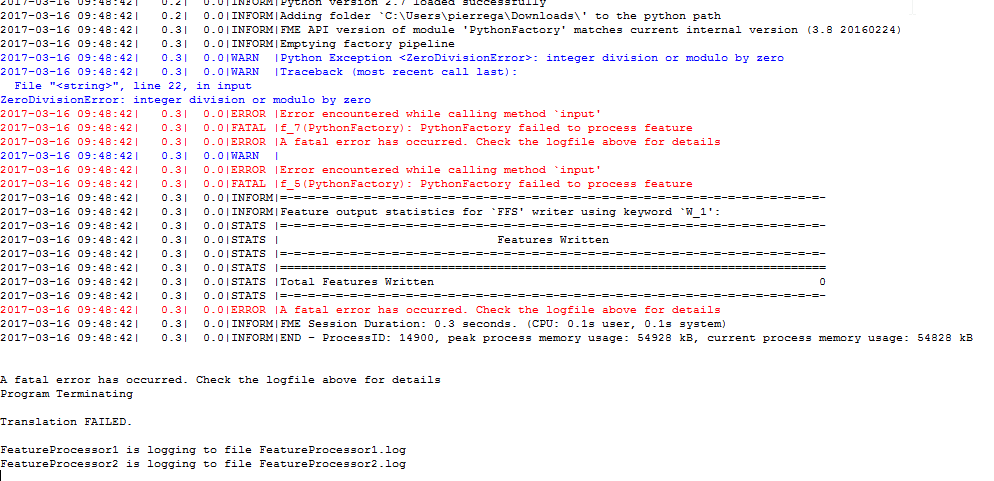Hello,
I think there is something in the way FME python process are interacting that I don't understand.
I used the python library "logging" to track exceptions resolved in my python callers, In every python callers, in the creator of the feature processor, I define the loggers, using different files names, and different object names, but in the end every log line is written, not only in said file, but is also stacked in any log file created by any previous python caller...
(TL;DR: the log file B.log contains log from pythonCallerB but the log file A.log contains logs from both pythonCallerB and pythonCallerA)





